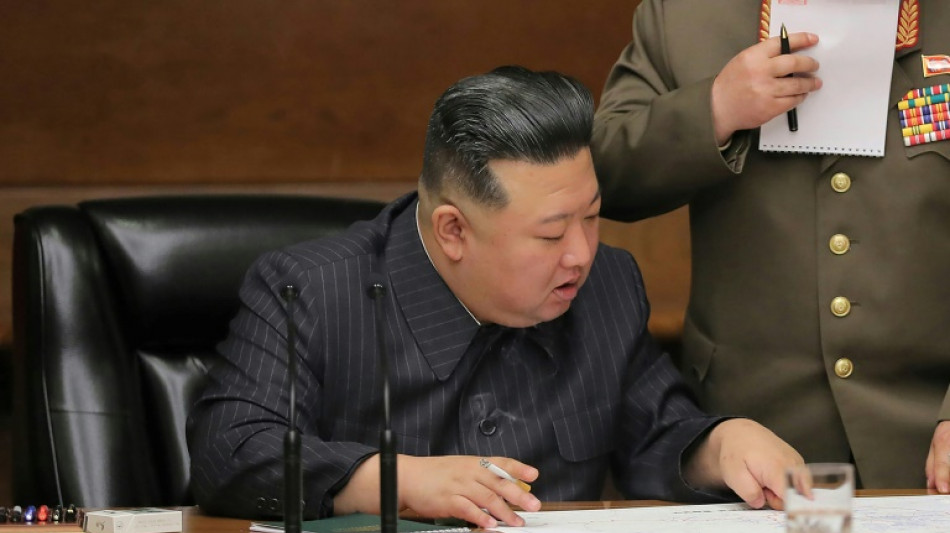

North Korea confirms June launch of military spy satellite: KCNA
North Korea has confirmed it will launch a reconnaissance satellite in June, saying it is needed to monitor military movements of the United States and its partners in real time, state media reported Tuesday, citing a senior defence official.
Japan said Monday it had been informed by Pyongyang that a satellite launch could happen as early as this week, but Tokyo warned the North may in fact be planning a sanctions-defying ballistic missile test.
The North's state Korean Central News Agency cited Ri Pyong Chol, vice-chairman of the ruling party's central military commission, as saying the "military reconnaissance satellite No. 1" would be "launched in June".
That satellite, along with "various reconnaissance means due to be newly tested, are indispensable to tracking, monitoring... and coping with in advance in real time the dangerous military acts of the US and its vassal forces", the statement said.
Citing "reckless" acts by Washington and Seoul, Ri said North Korea felt "the need to expand reconnaissance and information means and improve various defensive and offensive weapons" in an effort to bolster military preparedness.
The official also accused the United States of conducting "hostile air espionage activities on the Korean peninsula and in its vicinity", according to the KCNA dispatch.
North Korea informed Japan it would launch a rocket between May 31 and June 11, identifying waters near the Yellow Sea, the East China Sea and to the east of Luzon Island in the Philippines as warning areas, a Japanese coast guard spokesman told AFP.
Such zones are usually designated for falling debris or rocket stages.
Japanese Prime Minister Fumio Kishida told officials to gather intelligence "on North Korea's notification about the launch of a ballistic missile that it describes as a satellite", his office said in a tweet.
"Even if it's described as a satellite, a launch using ballistic missile technology would be a violation of United Nations Security Council resolutions" and would threaten people's safety, Kishida told reporters.
In 2012 and 2016, Pyongyang tested ballistic missiles that it called satellite launches. Both flew over Japan's southern Okinawa region.
North Korean leader Kim Jong Un this month inspected the country's first military spy satellite as it was prepared for launch, and gave the green light for its "future action plan".
- 'Cannot be justified' -
In 2021, Kim had identified the development of such satellites as a key defence project for the North Korean military.
Because long-range rockets and space launchers share the same technology, analysts say developing the ability to put a satellite in orbit would provide Pyongyang with cover for testing banned intercontinental ballistic missiles (ICBMs).
Japan's defence ministry issued an order to shoot down any ballistic missile confirmed to be on course to fall into its territory.
South Korea's foreign ministry condemned the launch plan, but officials did not confirm to AFP if Seoul had been directly notified of it.
"North Korea's so-called 'satellite launch' is a serious violation of UN Security Council resolutions banning all launches using ballistic missile technology, and is a clearly illegal act that cannot be justified under any pretext," the ministry said.
South Korea and Japan have been working to mend long-frayed ties, including with greater cooperation on North Korea's military threats.
- Unusual stance -
Meanwhile, Kishida on Monday reiterated that Tokyo is open to talks with Pyongyang.
North Korean state media on Monday published a statement from the country's vice-minister of foreign affairs, appearing to endorse a conciliatory approach to relations with Japan -- an unusual stance from Pyongyang.
If Japan avoids "being shackled by the past, and seeks a way out for improving the relations, there is no reason for the DPRK and Japan not to meet", said the statement from Pak Sang Gil, using the initials of North Korea's official name.
Pak said, however, that Japan needs to move on from sticking points such as the "abduction issue" for ties to improve.
Japan suspects dozens of people who are still missing were abducted by North Korean agents in the 1970s and 1980s to train spies in the Japanese language and culture.
J.Lee--RTC



